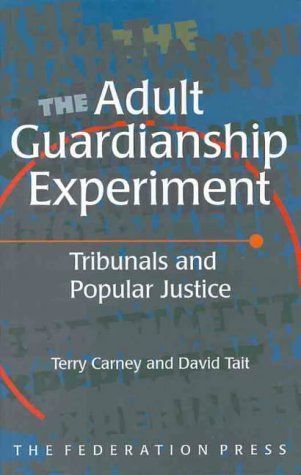
The Adult Guardianship Experiment Tribunals & Popular Justice
During the 1980s, Australia remade its 'adult guardianship' laws that governed people unable to manage their own affairs or property. The reforms embraced UN principles and took a common pattern with reformist North American and European countries - with one key exception. The rest of the world chose courts to administer the laws; Australia created specialist multi-disciplinary tribunals. This book compares the work of guardianship tribunals and courts and argues forcefully that Australia's adult guardianship experiment in popular justice is a success. Carney and Tait present work on the Australian tribunals in NSW and Victoria and compare them with overseas studies on courts (and the Family Court of Australia). On every measure tribunals outperform courts. They are more inclusive. They pay more attention to social context and functioning, and are better at incorporating the affected person into the hearing, striking an 'alliance' with them. Courts, by contrast, favour alliances with families and the medical profession. Even in areas where courts might be expected to perform better, they are less successful than the tribunals, collecting and testing evidence and avoiding unnecessary intervention.